+ The consultant matrix to pick your specialty, objection handling scripts & a 30-day roadmap to land clients…
The Small Business Consultant Matrix
| Consultant Type | Earning Potential | Personality Fit | Skills Required | What Clients Look For | How to Instantly Get Attention |
|---|---|---|---|---|---|
| 1. Strategy Consultant | Average $124,402/year (Source: PayScale) | Analytical, strategic thinker | Problem-solving, critical thinking, business planning | Fresh perspective, clear roadmap | Share a case study showing 30%+ growth |
| 2. Marketing Consultant | Average $74,034/year (Source: PayScale) | Creative, data-oriented | Digital marketing, analytics, content creation | Measurable ROI, lead generation | Offer a free website or social media audit |
| 3. Financial Consultant | $79,310-$99,890/year (Source: Coursera) | Detail-oriented, logical | Financial analysis, forecasting, risk assessment | Cost savings, improved profitability | Identify 3 specific tax advantages they’re missing |
| 4. IT/Digital Consultant | Average $103,415/year (Source: Zippia) | Analytical, problem-solver | Technical expertise, systems thinking | Efficiency gains, competitive advantage | Demonstrate security vulnerabilities they have |
| 5. Operations Consultant | Average $67,333/year (Source: PayScale) | Process-oriented, detail-focused | Systems analysis, efficiency optimization | Cost reduction, streamlined processes | Show how to reduce operational costs by 15-20% |
| 6. HR Consultant | Average $65,799/year (Source: Workable) | People-oriented, empathetic | HR regulations, talent management | Improved retention, reduced risk | Offer a free employee engagement assessment |
| 7. Sales Consultant | Average $64,453/year (Source: PayScale) | Persuasive, relationship-builder | Sales techniques, negotiation, CRM expertise | Revenue growth, improved conversion | Show a simple technique that increases close rates by 20% |
| 8. Project Management Consultant | Average $95,654/year (Source: PayScale) | Organized, detail-oriented | Planning, resource allocation, risk management | On-time, on-budget delivery | Present a template that improves project visibility |
| 9. Legal Consultant | Average $86,450/year (Source: ZipRecruiter) | Analytical, detail-oriented | Legal expertise, risk assessment, compliance | Risk reduction, legal protection | Identify 3 compliance issues they’re unaware of |
| 10. Environmental Consultant | Average $56,151/year for entry-level (Source: ZipRecruiter) | Conscientious, analytical | Sustainability knowledge, regulatory expertise | Compliance, brand enhancement | Showcase potential cost savings from sustainability initiatives |
Handling Client Objections Like a Pro
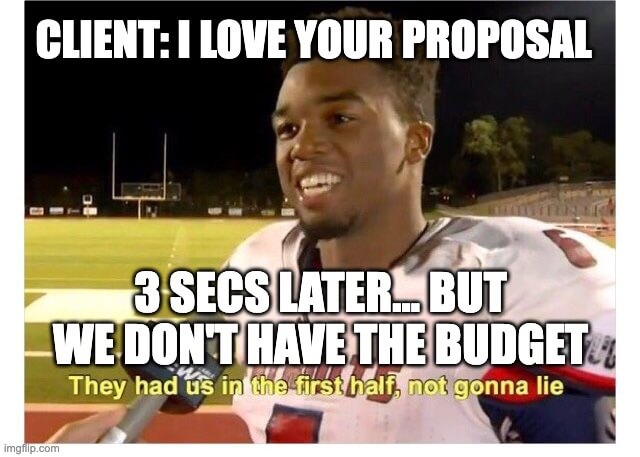
Consultants often worry about what to say when clients question their abilities.
Here’s how to answer common questions:
| What Clients Say | How You Can Respond |
|---|---|
| “Have you worked in our industry before?” | “I haven’t worked directly in your industry yet, but I’ve solved similar problems in other businesses. Sometimes fresh eyes see things insiders miss. Let me show you how I would tackle your specific problem.” |
| “This costs too much.” | “I understand money matters. Most of my clients get back $3-5 for every $1 they spend with me. Would you like to start with a smaller project to see the value first?” |
| “I need to think about it.” | “That makes sense. What parts are you unsure about? I can explain those better. Should we talk again next Tuesday after you’ve had time to think?” |
| “Why not hire a bigger consulting company?” | “Big firms often give small clients to their newest staff. With me, you work directly with the expert. I respond faster and charge less because I don’t have big office costs.” |
| “We don’t need this right now.” | “I understand. What are you working on instead? I might be able to help with your current priorities in a different way.” |
| “I need to check with my boss/team.” | “Of course. Would it help if I made a simple handout explaining how this helps your company? Or would you like me to join a call with your team to answer their questions?” |
| “Can you promise specific results?” | “I can’t make promises, but I can show you what happened with other clients. We’ll set clear goals together and track progress so you can see exactly what’s working.” |
| “Just send me some information.” | “I’d be happy to. What part of our talk interested you most? That way I can send you helpful information instead of boring brochures.” |
| “We tried a consultant before and it didn’t help.” | “I’m sorry that happened. What went wrong last time? My approach is different because [simple explanation]. I focus on making sure you can actually use my advice, not just read it.” |
| “I prefer working with someone local.” | “I understand meeting in person is helpful. While I’m based in [location], I can visit your office X times during our project. Between visits, we can use simple video calls and online tools to work together effectively.” |
Are you good at solving problems and want to help businesses grow? Becoming a small business consultant might be perfect for you.
This guide will show you exactly how to start helping small businesses and get paid for your expertise.
Let’s break down exactly what to do each day for the next 30 days to launch your consulting practice.
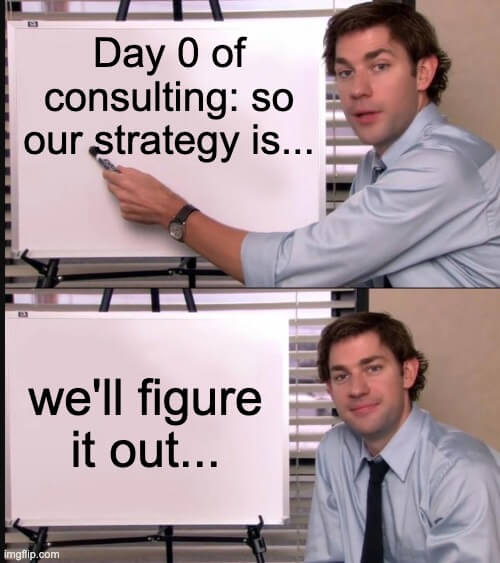
–
Your 30-Day Plan to Launch Your Consulting Business
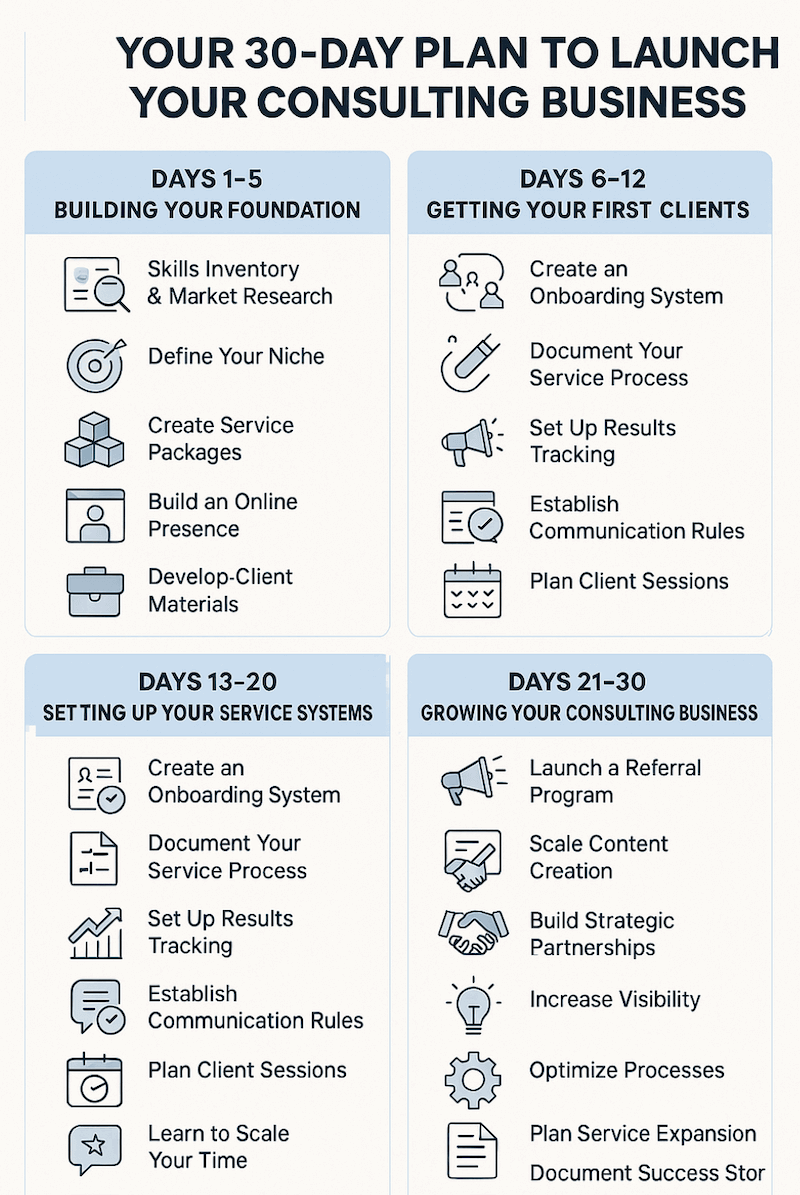
Days 1-5: Building Your Foundation
Day 1: Skills Inventory & Market Research
Make a list of all the business problems you know how to solve right now. Don’t worry if you don’t have formal qualifications.
Pick 3-5 problems that businesses currently struggle with. Look on Google Trends to see what’s popular.
Talk to 3 small business owners you know and ask what challenges they face. Write down their exact words.
Day 2: Define Your Niche
Choose one specific type of business you want to help based on your Day 1 research. Picking one industry or business size makes everything easier.
List 3 specific types of clients who would benefit most from your help. Be very specific (example: “e-commerce stores selling health products with $500K-$2M in revenue”).
Write a one-sentence description of who you help and how. This is your positioning statement.
Day 3: Create Your Service Packages
Create 2-3 simple service packages that solve the problems you identified. Start with a small “starter” package.
Price your services based on value, not time. According to the salary data above, even entry-level consultants in most fields earn $50-80 per hour.
Write down exactly what clients will get in each package and what problems each one solves.
Day 4: Build a Simple Online Presence
Create a one-page website using Google Sites (free). Include your services, about you, and how to contact you.
Update your LinkedIn profile to show your consulting focus. Add your new title and services.
Set up Calendly (free plan available) so people can book time with you easily.
Day 5: Create Client Materials
Write a 30-second pitch explaining what you do. Practice saying it out loud until it sounds natural.
Make a simple slide deck using Canva (free plan available) for client meetings. Keep it un der 10 slides.
Create a one-page PDF that explains your services and the results clients can expect.
–
Days 6-12: Getting Your First Clients
Day 6: Activate Your Network
Make a list of 20 people who might know someone who needs your help. Include former colleagues, friends, and family.
Send personalized messages to 10 people on your list. Tell them about your new consulting business and ask if they know anyone who might need help.
Post an announcement on LinkedIn about your new business. Share what specific problems you solve.
Day 7: Create a Lead Magnet
Make a helpful free resource related to your consulting focus. This could be a checklist, guide, or template.
Set up BirdSend email marketing tool (free trial available) to automatically deliver your free resource to new subscribers.
Add this free offer to your website and LinkedIn profile to collect email addresses.
Day 8: Direct Outreach Campaign
Identify 10 businesses that fit your ideal client profile. Find them on LinkedIn or through local business directories.
Research each business to find a specific problem they might have that you can solve.
Send personalized emails offering help with that specific problem. Focus on them, not you.
Day 9: Start Content Marketing
Write your first helpful article about a common problem in your niche. Make it practical with specific tips.
Share this article on LinkedIn and any other platforms where your potential clients hang out.
End the article with an invitation to book a free call with you to discuss their specific situation.
Day 10: Free Consultation Day
Offer 3-5 free 30-minute consultations to potential clients. Use Zoom or Google Meet for these calls.
Prepare a structure for these calls: learn about their problem, share a quick tip they can use right away, explain how you could help further.
Take detailed notes during each call about the problems they describe.
Day 11: Build a Follow-Up System
Create email templates for following up with prospects after calls or meetings.
Set up a simple client tracking system using Trello (free plan available). Create cards for each prospect.
Schedule follow-ups with everyone you’ve spoken to in the past 10 days.
Day 12: Focus on Converting Clients
Refine your proposal template based on the conversations you’ve had.
Create a simple case study format you can fill in after working with clients.
Practice answering objections you heard during your free consultations. Refer to the “Objection Handling” table above.
–
Days 13-20: Setting Up Your Service Systems
Day 13: Create an Onboarding System
Make a welcome packet for new clients that explains how you’ll work together.
Create a questionnaire using Google Forms to gather information from new clients.
Write welcome emails that automatically go out when someone hires you.
Day 14: Document Your Service Process
Write down the step-by-step process you’ll follow for each of your services.
Create templates for the deliverables you’ll provide to clients.
Build a quality checklist to make sure your work is consistently good.
Day 15: Set Up Results Tracking
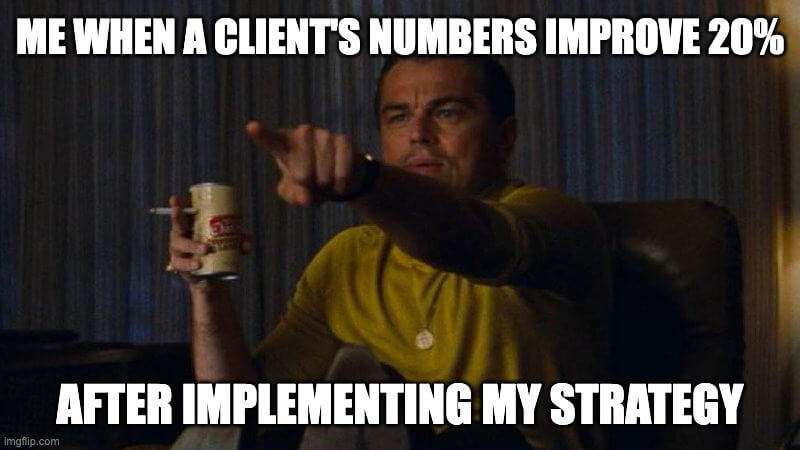
Create templates for tracking client results before and after working with you.
Develop simple methods to measure the impact of your work.
Make a system for regular check-ins with clients to discuss progress.
Day 16: Establish Communication Rules
Decide when you’ll be available to clients and when you won’t.
Create email templates for common client situations.
Set clear boundaries about response times and communication channels.
Day 17: Plan Your First Client Sessions
Create agenda templates for different types of client meetings.
Set up Miro or MURAL (free plans available) for visual collaboration.
Make a system for documenting action items and who’s responsible for them.
Day 18: Learn to Scale Your Time
Identify tasks you do repeatedly that could be turned into templates.
Create standard procedures for common activities in your business.
Start using Toggl (free plan available) to track how much time different activities take.
Day 19: Gather Testimonials
Create a simple email template for requesting testimonials from clients.
Decide when in your client process you’ll ask for feedback.
Plan how you’ll showcase testimonials on your website and in proposals.
Day 20: Improve Your Services
Review feedback from your initial clients or free consultations.
Make improvements to your service packages based on what you’ve learned.
Look for opportunities to add more value for clients without adding much work.
–
Days 21-30: Growing Your Consulting Business
Day 21: Start a Referral Program
Create a simple plan to encourage clients to refer others to you.
Write email templates to ask for referrals at the right time.
Decide if you’ll offer incentives for referrals and what they’ll be.
Day 22: Scale Your Content Creation
Plan your content for the next month. Focus on addressing common client questions.
Create templates for different types of content to save time.
Schedule one day per week to create all your content for the week.
Day 23: Build Strategic Partnerships
Identify 3-5 professionals who serve the same clients but don’t compete with you.
Reach out to potential partners with specific ideas for how you could help each other.
Set up initial conversations to explore partnership opportunities.
Day 24: Increase Your Visibility
Join 3-5 online communities where your ideal clients spend time.
Schedule time each week to participate in discussions and answer questions.
Share your expertise without directly promoting your services.
Day 25: Optimize Your Processes
Review your client work so far and identify bottlenecks or inefficiencies.
Streamline your processes to save time and improve results.
Remove any unnecessary steps in your workflow.
Day 26: Plan Service Expansion
Based on client feedback, identify one additional service to offer.
Create the delivery framework for this new service.
Develop materials to promote this new offering to existing and new clients.
Day 27: Document Client Success
Create detailed case studies from your client work.
Use Canva to make these case studies visually appealing.
Share these success stories on your website and social media.
Day 28: Review Your Pricing
Analyze whether your current pricing is working for you and your clients.
Consider moving to value-based pricing if you haven’t already.
Make adjustments to your pricing based on the value you’re delivering.
Day 29: Automate Where Possible
Identify repetitive tasks in your business that could be automated.
Set up Zapier (free plan available) to connect your tools and automate workflows.
Focus your time on high-value activities that only you can do.
Day 30: Create Your 90-Day Plan
Set specific goals for the next 3 months.
Create a content and outreach calendar.
Establish key metrics to track your business growth.
–
Beyond 30 Days: Building a Sustainable Consulting Career
After your first 30 days, you’ll be up and running with your own consulting business. Now let’s look at how to build a lasting career.
Deepening Your Consulting Expertise
Work closely with early clients to identify areas where you can provide even more value. Your communication skills will improve with each client engagement.
Business leaders hire consultants who provide insights beyond what their team already knows. Focus on delivering tailored advice that addresses specific business issues.
The average base salary for consultants continues to increase as you gain experience. Your income will vary based on your specialty and the results you deliver.
Expanding Your Service Offerings
Use market analysis to understand which professional services your target market needs most. Most businesses need help with cash flow, marketing strategy, and sales processes.
Small business consultant offers can grow to include specialized areas like human resources, network security, or intellectual property protection.
Strategic planning services often command higher pay than tactical work. Help clients improve efficiency and increase revenue for better long-term results.
Building a Respected Practice
Your consulting role will evolve as you establish your own practice in the business world. Many successful consultants begin with a narrow focus and expand over time.
Business development isn’t just about finding new clients—it’s about growing relationships with existing ones. A sole proprietorship can evolve into a larger firm with sales teams as your client base expands.
Industry experts don’t just attend industry events—they speak at them. As your unique value proposition becomes clearer, you’ll find it easier to stand out in the market.
–
Learn While Earning
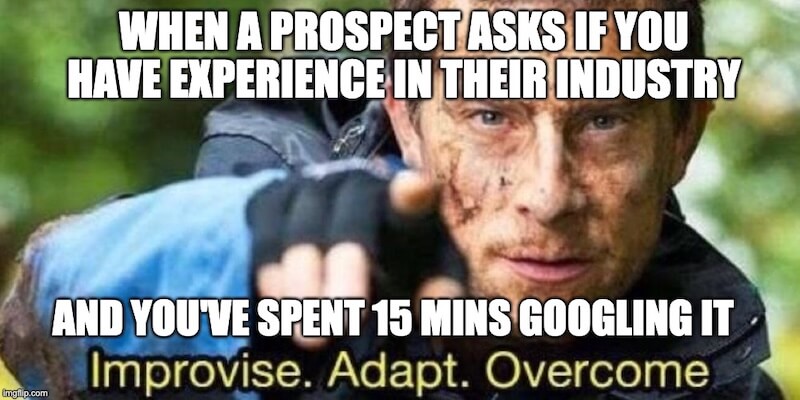
Most guides about becoming a consultant focus on credentials, years of experience, and complicated business setups.
But our approach is different. Here’s why it works better:
Instead of spending years in school or training, start helping businesses right away with what you already know. Then improve as you go.
Here are 3 real examples of people who succeeded by learning while earning instead of spending years in formal education:
1/ Richard Branson
The founder of Virgin Group dropped out of school at 16 due to struggles with dyslexia. Instead of formal education, he jumped right into business and learned as he went, building an empire that spans airlines, music, and telecommunications. Today, Virgin is one of the most recognized brands globally.
Source: Bizinp
–
2/ Matt Mullenweg
The creator of WordPress (which now powers around 35% of all websites) dropped out of the University of Houston to work at CNET Networks. Rather than completing his degree, he learned through practical experience and just two years later founded Automattic, the company behind WordPress.com, Tumblr, and other major internet brands.
Source: The Gentleman’s Journal
–
3/ Gail Corder Fischer
fter high school, she skipped college and moved to Georgia for a sales job that involved extensive traveling. She learned business skills through practice, not theory. At 27, she had enough confidence to leave a well-paying job to start her own business while raising two young children. By 29, she had taken her company public and later built and sold another business for $151 million.
Source: Business Insider
–
“Take Orders” for Your Consulting Business with CartMango
After following this 30-day plan, you’ll have the foundation of a successful consulting business. Now it’s time to make selling your services even easier.
Unlike general cart / checkout tools, CartMango is built specifically for solo consultants, coaches, and creators.
With CartMango, you can set up your consulting offers for sale in just 1 minute. This means you can focus on helping clients instead of figuring out complex tech.
Here’s what makes CartMango suitable for consultants:
Set up your consulting offers for sale in just 1 minute: This means you can focus on helping clients instead of figuring out complex tech.
Simple Checkout Pages: Create a simple and fast 1-page checkout that convert prospects into clients.
Automatic Payments: Get paid instantly to your Stripe/PayPal account without waiting for payouts.
The best part? CartMango is completely free for all of 2025. You only pay the standard Stripe/PayPal fees.
Claim your free CartMango account and start selling your consulting services today.
–
The most successful consultants are those who take action and adjust as they go. Your first client won’t expect perfection—they just want help solving their problems. And that’s something you can start providing today.
Related
- SendOwl vs SamCart: The Recurring Revenue Jail (2026)
- ThriveCart vs ClickFunnels: When more features hurt (2026)
- SendOwl vs Payhip: The “You-Leave-You-Lose” Model (2026)
- SamCart vs Kajabi: The Income Hostage Trap (2026)
- Sellfy vs Payhip: The Recurring Revenue Prison (2026)
- Podia vs Gumroad: The Recurring Revenue Handcuffs (2026)
- SendOwl vs Gumroad: The Recurring Revenue Black Hole (2026)
- Gumroad vs Sellfy: The Vendor Lock-in Cage (2026)
- Gumroad vs Payhip: The Hidden Trap for Creators (2026)
- ThriveCart vs SamCart – The Subscription Hostage Trap (2026)
